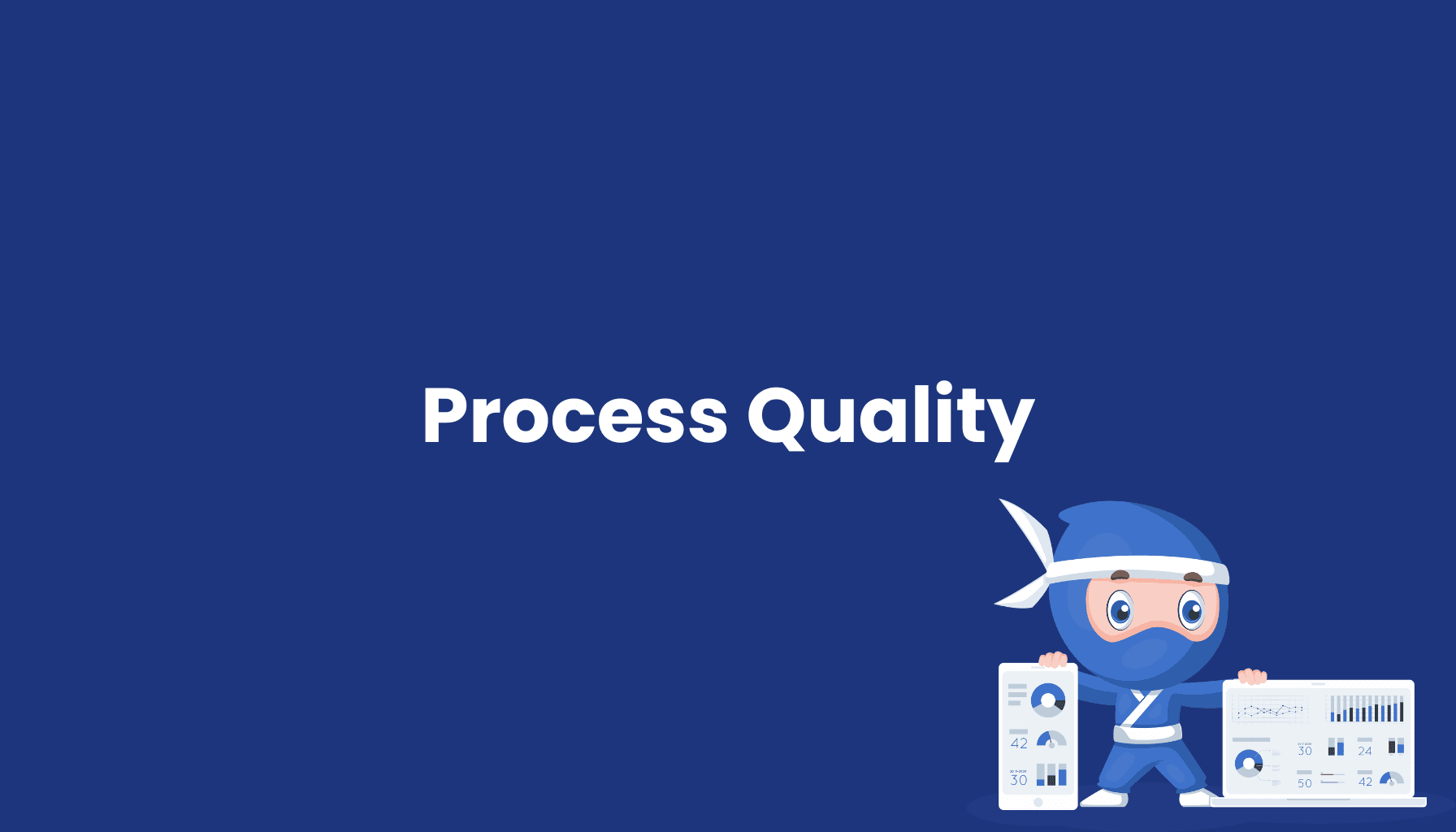Process Quality

What is Process Quality?
Process quality refers to the effectiveness and efficiency of processes within a company to achieve the desired results and meet established quality requirements. It is a central component of quality management and aims to ensure that all processes run smoothly, leading to high product and service quality.
Quality in Processes
The quality of a process depends on various factors, including its structure, efficiency, and ability to consistently deliver results. In this context, quality means that processes not only produce the desired outcomes but do so in a way that minimizes resource use and reduces risks. High process quality requires careful planning, monitoring, and continuous improvement to ensure that they meet both the company's and customers' requirements.
Requirements for Process Quality
The requirements for process quality vary depending on the industry and specific business context but generally include the following aspects:
- Customer Satisfaction: Processes must be designed to deliver products and services that meet or exceed customer expectations.
- Compliance with Standards: Processes must adhere to all relevant standards and regulatory requirements.
- Efficiency: Processes should be optimized to operate with minimal resources and waste.
Maintaining Process Quality
Continuous maintenance of process quality is crucial to ensure that processes remain effective over time. This involves regular review and updates, as well as employee training to ensure they are familiar with and can implement best practices.
Quality Management and Process Quality
A strong quality management system is essential to ensure process quality. It provides the framework and tools necessary to plan, monitor, and continuously improve processes. Quality management ensures that processes are systematically monitored, and process quality is checked through regular audits, inspections, and testing.
First Pass Yield (FPY) as a Metric of Process Quality
First Pass Yield (FPY) is a critical metric for evaluating process quality. FPY measures the percentage of products that pass through the entire production process without rework or errors on the first attempt. A high FPY indicates that processes are efficient and defect-free, while a low FPY suggests potential issues that may require process optimization.
Outcome Quality and Structural Quality in the Context of Process Quality
Outcome quality refers to how well the final products or services meet established standards and customer expectations. High outcome quality is often the result of high process quality, where all steps in the process flow are optimized and consistently executed. Structural quality, on the other hand, relates to the organizational and technical prerequisites that provide the foundation for high-quality processes. Both aspects are crucial for overall process quality.
Measuring Process Quality
Measuring process quality is essential to ensure that processes function effectively. By analyzing process metrics such as FPY, rework, and reliability, companies can identify weaknesses and implement targeted improvements. These measurements help continuously optimize processes and ensure the quality of the results.
Role of Processes in Establishing and Maintaining Quality Standards
Establishing and maintaining quality standards require implementing robust processes that not only achieve these standards but also maintain them consistently. This applies not only to production but to all business areas, including administration and procurement processes. By clearly defining and monitoring processes, companies can ensure they consistently meet and improve their quality standards.
Process Quality Across Various Business Areas
Ensuring process quality involves all areas of a company, from manufacturing to administration and logistics. Each area must optimize its specific processes to contribute to the overall quality of the company. Maintaining high process standards in the day-to-day operations is crucial for long-term success.
Articles on Process Quality: In-Depth Analysis and Examples
Process quality is a broad topic extensively covered in numerous articles and studies. These articles provide practical examples of how companies have enhanced their process quality through targeted measures, thus improving their competitiveness. Articles on process management offer deeper insights into the techniques and methods for optimizing process quality.
Ensuring process quality on every side of a business is essential. Continuous monitoring and improvement of processes, especially in areas directly linked to service and customer satisfaction, are crucial for maintaining high standards.
Cloud MES by Symestic: Optimizing Your Process Quality
To elevate your company’s process quality to the next level, Symestic’s Cloud MES offers a powerful solution. With real-time monitoring, automated quality controls, and comprehensive data analysis, our system helps you continuously optimize your production processes. Symestic Cloud MES supports you in sustainably improving both product and service quality while enhancing your company’s competitiveness.
Leverage the benefits of Symestic Cloud MES to maximize your process quality and achieve your business goals more efficiently. Learn more on our website.





